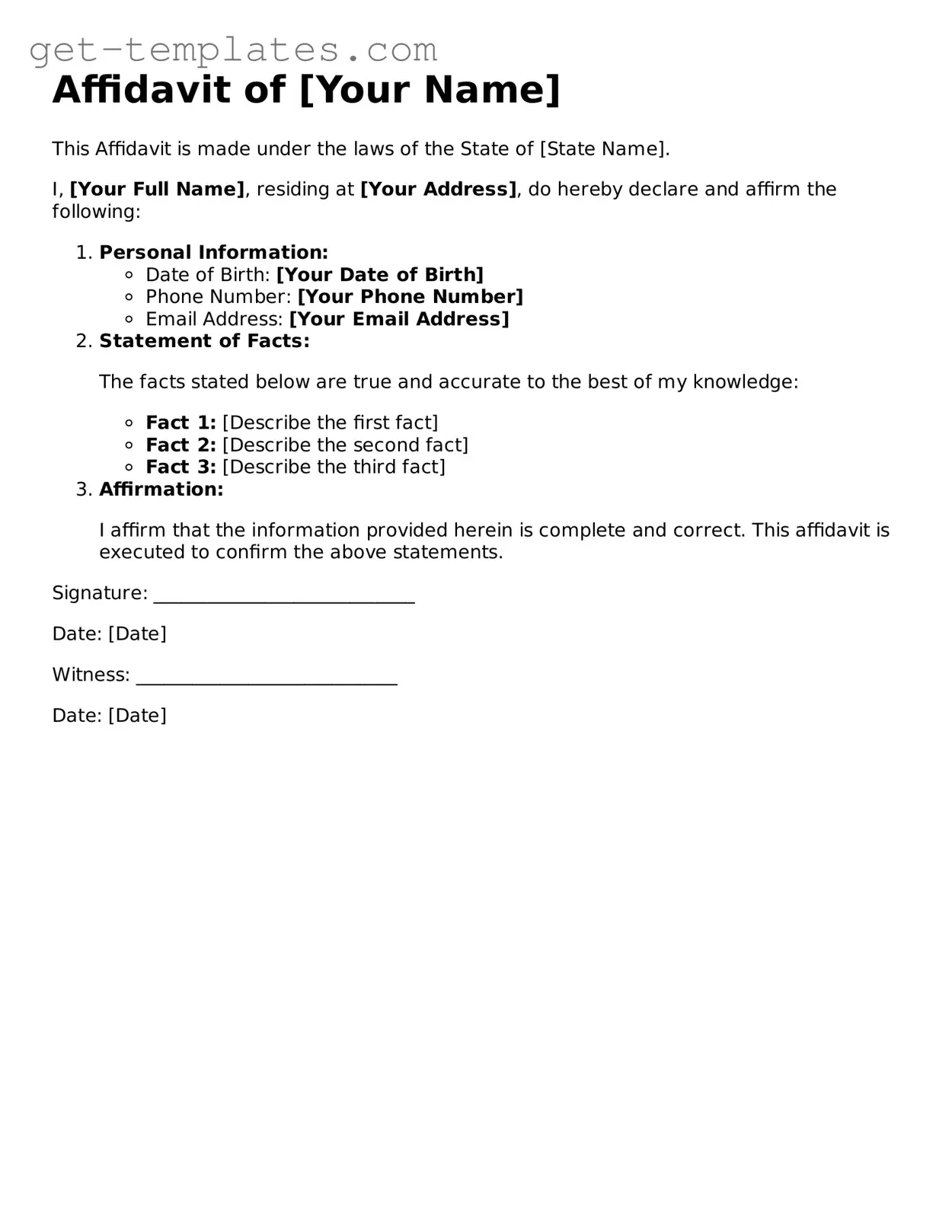Attorney-Approved Affidavit Form
An affidavit is a written statement confirmed by oath or affirmation, used as evidence in legal proceedings. This form serves as a crucial tool for individuals to present facts under penalty of perjury. Understanding its components and uses is essential for anyone navigating the legal system.
Get Document Online

Attorney-Approved Affidavit Form
Get Document Online
You’re halfway through — finish the form
Finish Affidavit online — edit, save, download made easy.
Get Document Online
or
⇓ PDF Form
